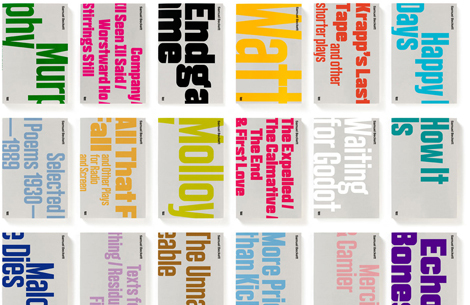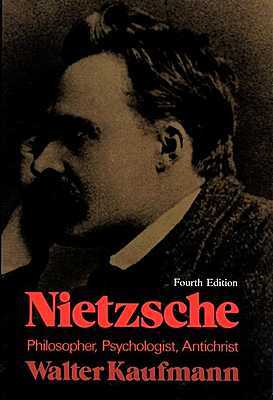Rudy Wilson’s The Red Truck
 Very excited last night by an email from Peter Markus, who mentioned that the long-difficult-to-drum-up novel The Red Truck by Rudy Wilson has just been reprinted by Ravenna Press, along with another new book by Mr. Wilson. I seriously almost paid a heftier tag a week or two ago when I was about to buy the original version on Amazon used, but now the always excellent Ravenna has solved that problem.
Very excited last night by an email from Peter Markus, who mentioned that the long-difficult-to-drum-up novel The Red Truck by Rudy Wilson has just been reprinted by Ravenna Press, along with another new book by Mr. Wilson. I seriously almost paid a heftier tag a week or two ago when I was about to buy the original version on Amazon used, but now the always excellent Ravenna has solved that problem.
If you haven’t read Rudy Wilson before, via this novel or in issues of Unsaid or elsewhere, here’s Peter on why this means you should be excited too:
The Red Truck is one of those late-80s Knopf books edited by Lish that I found remaindered one day in some TV appliance-warehouse-turned-bookshop that is now a place that sells tires. I took it home and immediately could feel the sensation of something new running through my hands. I think it’s a brilliant book, a one of a kind book, a book that wouldn’t have been made into a book had it not found its way into Gordon’s hands. I think the story goes behind it that Lish cut the manuscript in half (sort of what he did to Barry Hannah’s revved up Ray). I suspect what Lish did was find the core of Rudy’s Red Truck and cut away much of what a much younger Wilson thought was needed to hold the story together. For me it’s a novel that is pure hallucination and is the kind of book that I return to again and again in order to recapture that initial rush that language in its purest, most musical form can offer to us. Each time that I do Rudy’s sentences unglue me and then put me back together in new ways. I let my sister read The Red Truck, some years ago, and when she did she ended up having a major seizure. The effect that the book had on my sis is what we all want from our work: sentences that take hold of the brain and seize it up, unhinge us from the world around us, and make the body of us do some fucked-up sort of pogo to a music that Wilson’s song makes us hear inside our own heads. The Red Truck by Rudy Wilson is the realest of deals. You can get it now from Ravenna Press along with a brand new book of short fiction by Wilson called Sonja’s Blues. And while you’re loitering around at the Ravenna website, do yourself a third favor and nab Norman Lock’s The Long Rowing Unto Morning, an equally dreamy and necessary book. Thanks for listening.
You can pick up the book, also available in a package deal with Wilson’s Sonja’s Blue, now from Ravenna Press.
Now we just need all those other Knopf gems to get the same treatment…
ISO SYLLABUS SUGGESTIONS: In past semesters, I’ve mostly taught conventional short stories to my conservative, non-English major Intro Lit students, thinking they’d be turned off by raw/experimental/genre-bending stuff. But I just taught “Cat N’ Mouse” by Steven Millhauser, and they loved it the most. Also, in another class, my students dug James Tate, though they were totally down on Lyn Hejinian. So I’ve changed my thinking, and I’m looking for suggestions of stories and poets to teach that/who are less conventional but more approachable for students who normally see reading as a chore. Whatcha got?
Too Chic for Old Cranky
I like Beckett, and I like good design, but I don’t like these Beckett book covers:

(Click here and scroll to see them bigger at the site of their designer, A2/SW/HK.) These futuristic blocks don’t seem to bear out that modern chestnut at all. Am I right or am I right?
HERE IS AN OFFER FROM MUD LUSCIOUS PRESS:
fuck black friday. free mlp. email author@aboutjatyler with a mailing address & we will send some mlp your way. enjoy.
best,
j. a. tyler
BOOK REVIEW
November 24th, 2009 / 11:55 pm
(1) Excellent ode to the use of the telephone in film at I Heart Hotdogs [via notcoming]
(2) Excellent Félix Fénéon Novels in Three Lines feature this week at 52 Stories.
Nice interview with Kate Bernheimer at Conjunctus: “The Great Gatsby is as much a fairy tale as Coraline. Sometimes the fantastical resides in the syntax. Sometimes it resides in a closet.”
Slayer / Htmlgiant
I’ve always liked it when fans cut SLAYER into their bodies (nobody does this with country or jazz; satan rulz). I like htmlgiant a lot, but not enough to cut it into my body. Instead, I asked my wife (got married, fyi) to write HTMLGIANT with Sriracha hot sauce in her best “slayer font,” and in case you think I’m a wus, it totally burned. Satanic music jeopardized my relationship with my mom, as she forbid me to listen to it. Htmlgiant has at times jeopardized my relationship with my wife, as I’m always on it and sort of ignoring her. She’s all “can you heat up the peas?” and I’m like “comment shit-storm babe, really emo now.” So this is an open thank you to a) Slayer: for shredding, b) htmlgiant: for being a bunch of racist fags¹, c) my mom: for eventually letting me be satanic, and d) my wife: for heating up the god damn peas herself.
—————————-
1. Don’t start.
Separation of Artist and Art

Saturday, Adam did a post that included reference to Heidegger, which aroused a comment dismissing Heidegger because of his Nazi connection (which was later appended to be a joke, but still…). I always frown when people make that argument, the same way I frown when people discuss Woody Allen and then somebody goes “Yeah, but he married his daughter.” I always want to say, so what? What difference does it make to their work? If you want to talk about them as people that’s one thing, but their work is something else.
The flip side is the recent Polanski debacle in which I saw/read many folks making the argument that he shouldn’t be prosecuted because he made great movies. I find this equally frown-worthy. I love Rosemary’s Baby as much as the next cinephile, but dude forced a child to have anal sex – who cares if Chinatown is the greatest movie ever made, that shouldn’t impact his prison sentence.
Why can’t we separate the artist from the art? Does it matter to you if a writer is a “good person” or a “bad person”? Does it change what you choose to read, or how you read something? If so, why? In what ways? Would you be more or less likely to buy my book if you found out I ran a bi-monthly baby-eating party in my basement?*
*for the record, I don’t have a basement
November 24th, 2009 / 1:14 pm
I.E. Reader, second post: Graham Foust
 This morning I was reading Wallace Stegner’s novel Crossing to Safety (in the bathtub, for those who track this kind of thing), and was struck by a chapter about a dinner party of some young English professors at the University of Wisconsin in the early middle of the last century. There is a lot in that section to grab my attention, including the academic climate just after the depression (people still cared about Chaucer and Spencer like they mattered), the drinking habits just after prohibition (capable hosts couldn’t mix a Manhattan), and the social dynamic between husbands and wives who could read Homer in Greek, and who would stand around the piano and sing hymns after dinner then listening to Beethoven A-sides in the sitting room. What fun!
This morning I was reading Wallace Stegner’s novel Crossing to Safety (in the bathtub, for those who track this kind of thing), and was struck by a chapter about a dinner party of some young English professors at the University of Wisconsin in the early middle of the last century. There is a lot in that section to grab my attention, including the academic climate just after the depression (people still cared about Chaucer and Spencer like they mattered), the drinking habits just after prohibition (capable hosts couldn’t mix a Manhattan), and the social dynamic between husbands and wives who could read Homer in Greek, and who would stand around the piano and sing hymns after dinner then listening to Beethoven A-sides in the sitting room. What fun!
One striking moment came when Sid, the party’s host, read from a volume of Housman, and everyone knew he was leading things a bit, but they indulged him as he read “Easter Hymn.” Then they discussed it in terms of what it meant for understanding the rest of Housman’s work, how it seemed too Christian for the old guy, how the two stanzas seemed out of order — and I loved reading all that. It made me 10 minutes late for work. Then I wondered if it would be possible for a contemporary poet to revisit Housman. Certainly no one today ought to go back and emulate him directly — he’s too transparent, too wrought in scansion and sentimental in thought to be compelling nowadays — but is anyone who’s any good making an update?
Well, below the fold, check out Graham Foust’s poem in the I.E. Reader, which is so primarily ahead of the surveillance that I was jolted to read it. It’s so throwback: READ MORE >



